Love and Destruction: Baldwin and Rosenfarb
Two great writers—one in English and one in Yiddish—with similar obsessions
I am currently reading James Baldwin’s masterful novel Another Country along with In the Land of the Postscript, an incredible book of Yiddish short stories by Chava Rosenfarb—and it is my delight to report that both writers have a lot to say about one particular and life-changing question: “do you love me?”
Interestingly, both writers are also fascinated by how we destroy each other.
My copies of both books. The Post-Its are my way of keeping track of passages to highlight in the review essay I am working on.
Let’s start with love. I used to teach Another Country every semester, but it’s been a while. One paragraph which stood out to me, then and now, comes very early in the book—on page 8 in the Vintage paperback. It’s a scene where the main character, Rufus, a musician, comes “doubly alive because the saxophone player, who had been way out all night, took off on a terrific solo. He was a kid of about the same age as Rufus, from some insane place like Jersey City or Syracuse, but somewhere along the line he had discovered that he could say it with a saxophone. He had a lot to say.”
James Baldwin in 1969. (Wikipedia)
This is the exact spot where you need your eyes as well as your ears. Each permutation of the question that’s about to come—do you love me?—is italicized in a different way, highlighting a different part of the question. And of course, it’s mimicking the music of the saxophone.
In Baldwin’s hands, Do you love me? Do you love me? Do you love me? — becomes (look closely)—Do you love me? Do you love me? Do you love me?
The italics get me every time.
I was obsessed with this novel while writing WOLF LAMB BOMB, and so Baldwin’s question—do you love me?—found its way into one of the Isaiah poems. I wrote about it for The Chicago Review of Books, and included some photos of the neighborhood where I happened to be while writing the poem “Night on Wellington Avenue” in Chicago along with a very short essay, called a micro-essay. https://chireviewofbooks.com/2021/06/08/night-on-wellington-avenue-chicago-an-excerpt-from-wolf-lamb-bomb/
But let’s go back to Yiddish masters of the short story. Rosenfarb is considered one of the most important Yiddish writers of the second half of the 20th century—so she was writing in the decades that Baldwin was. Imagine my amazement to discover that this collection of stories has that same question—“do you love me?”—on the last page, but this time, it’s spoken by deeply Jewish characters.
Chava Rosenfarb and her future husband in 1947.
The circumstances are also very different. In the story, “April 19th”, a Holocaust survivor named Hersh manages to find love again with another survivor named Bronia. “When Hersh first met her, her dark hair was still in the process of growing back after having been shaved off in the concentration camp. She had dark, burning eyes that occasionally glimmered with a tormented rage. She had lost her first husband, her parents and siblings at Auschwitz,” Rosenfarb, herself a survivor, writes.
But the story is rally about Hersh and his first wife, Rivkele. All of Rosenfarb’s stories are about the lives of survivors decades after the war—and how they cannot forget. At a Holocaust memorial ceremony, Hersh imagines that he sees Rivkele lighting a candle. Rivkele, of course, was one of the murdered.
Does his new wife Bronia know what he is imagining? Does she somehow feel it?
Rosenfarb ends the story with Hersh and Bronia in bed. I’m fascinated by the last sentence of the story—its present tense, its hint of the past, its continued obsession with the Shoah. And of course, that question that Baldwin so loved—do you love me?
The entire story was originally published in its English translation at JewishFiction.net. You can read “April 19th” by Chava Rosenfarb, translated by Goldie Morgentaler, here: https://www.jewishfiction.net/index.php/publisher/articleview/frmArticleID/17
Destroying Each Other
Let’s move from love to destruction, or more accurately, love that causes destruction, which apparently is a subject both of these very different writers thought about. Rereading Another Country, I was devastated by an exchange between Cass and Richard, a married couple. They are talking about the violent relationship one of their friends, Rufus, had with a woman named Leona.
Cass says “It can’t be justified.” Here is the entire exchange, complete with its astonishing last line.
I happened to reread this part of Another Country on the same day as I read “Edgia’s Revenge,” by Chava Rosenfarb. It is the story of a kapo in Auschwitz named Rella—in the camp she is known as Black Rella. In her years at the camp, she spares exactly one woman from death; that woman is named Edgia. Incredibly, Edgia survives the war, and years later, Rella recognizes Edgia as both are shopping for clothing in Montreal.
Rella, of course, had been hurt herself.
“In the camps I saw my entire family float heavenward with the smoke from the crematorium chimneys,” Rella remembers. “I wanted to save myself. I was nineteen years old. I wanted to survive. I didn’t choose the means by which to do it. There were no choices to be made.”
As the story unfolds, we learn all the terrible things Rella had to do to survive. But in the end, Edgia has the power to destroy Rella. After decades of an uneasy postwar friendship, it is Edgia who ends the friendship. “Edgia’s sentence seemed to pulverize me, to reduce me to dust,” Rella thinks. Here is the entire devastating passage:
The story is long and challenging, but unforgettable. I recommend it.
The Gettysburg Review
Both Baldwin and Rosenfarb initially published their work in small magazines—literary magazines. This week the literary world was shocked by the news that the wonderful journal The Gettysburg Review is closing its doors after 35 years. The president and provost of Gettysburg College announced that this was it for the magazine.
Like many writers, I owe The Gettysburg Review a debt of gratitude.
The Spring 2014 issue in which my essay appeared.
I am deeply grateful to The Gettysburg Review for publishing my essay “A Duck With One Leg,” and to then-editor Peter Stitt who sent me an unforgettable acceptance note that kept me going for a long time. (It said something like—“I will commit suicide if this piece is no longer available.”)
I worked on that essay for eleven years. It was republished in Longreads and listed as a notable in Best American Essays, but what has meant the most to me is how many writers and artists have written to me over the years to let me know how much that piece meant to them. I feel the same way about The Gettysburg Review, and I hope the growing public campaign to save it succeeds.
Here is the essay, about my longtime piano teacher, Mrs. Ludmilla Berkwic, about music, and about a life in art. The photo above is of Chopin—how the essay currently appears in the “Selections” section of The Gettysburg Review website.
https://www.gettysburgreview.com/selections/detail.dot?inode=de6d68aa-6b20-4300-8d00-31dd26b68413
I hope you enjoy it.
Literary journals are a home for work that takes a long time. What newspaper would wait eleven years for an essay? I thank Peter Stitt and all the current and former editors, interns, subscribers, and supporters, and I hope the Gettysburg Review lives on. Shabbat shalom and chag sameach!
***********************************************************************************************************
Hope you enjoyed this newsletter! Thank you for your support of writing with depth.

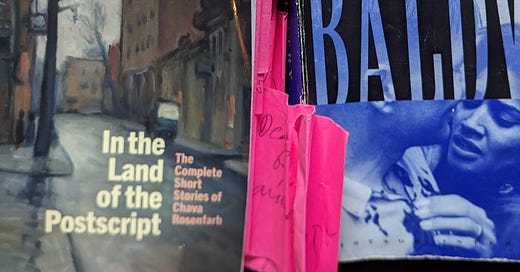



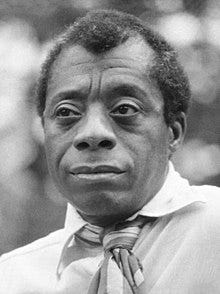
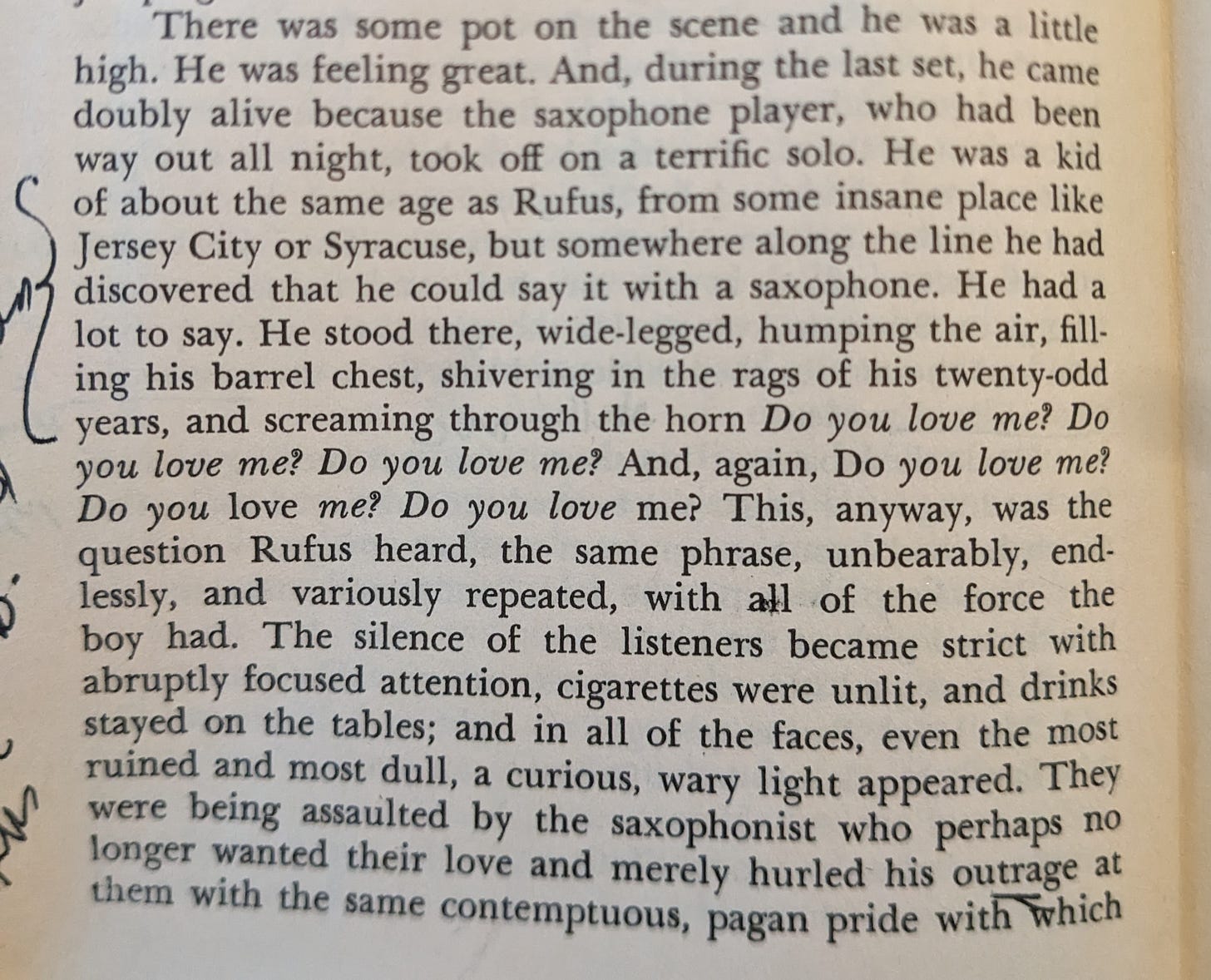
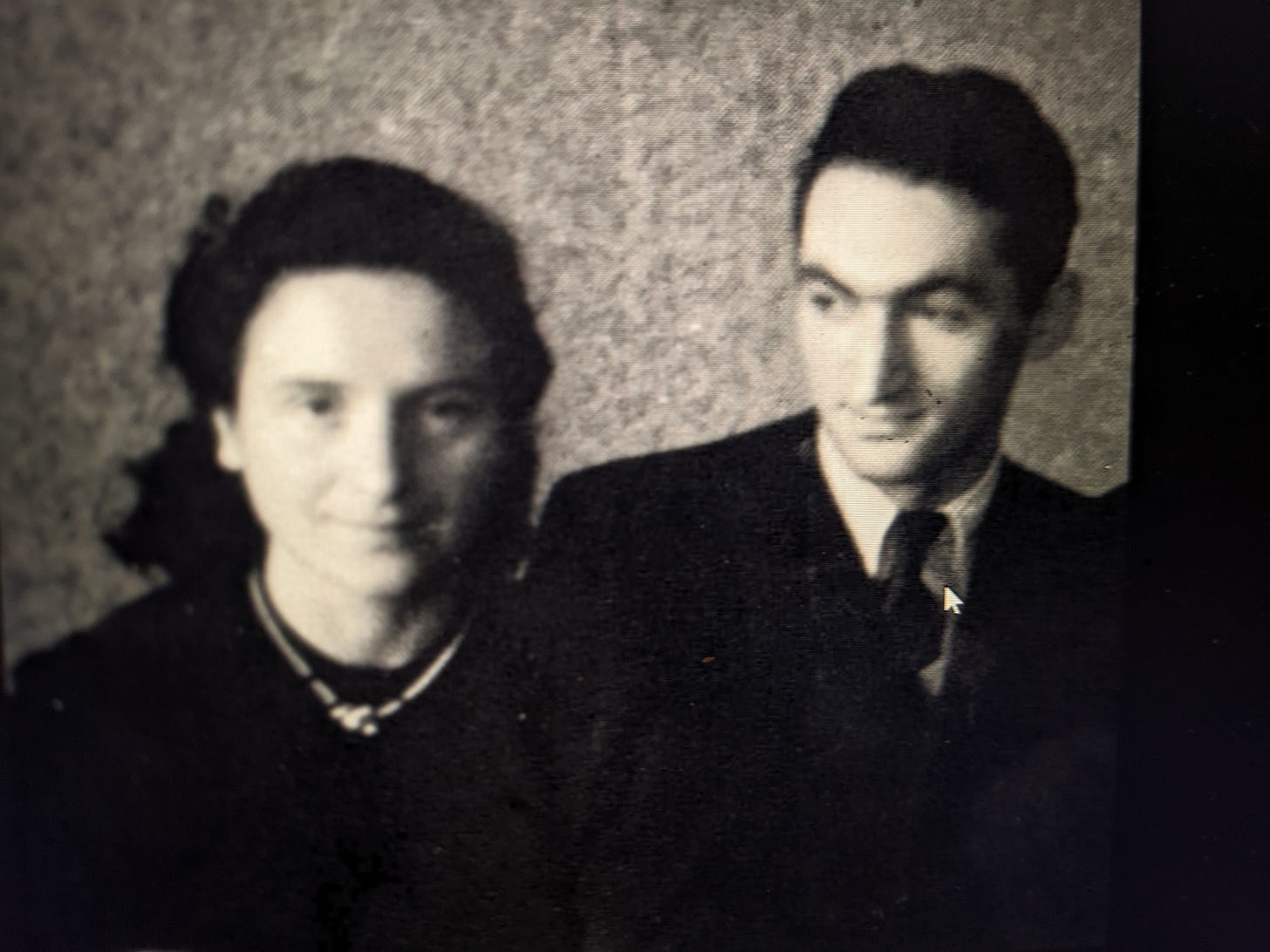
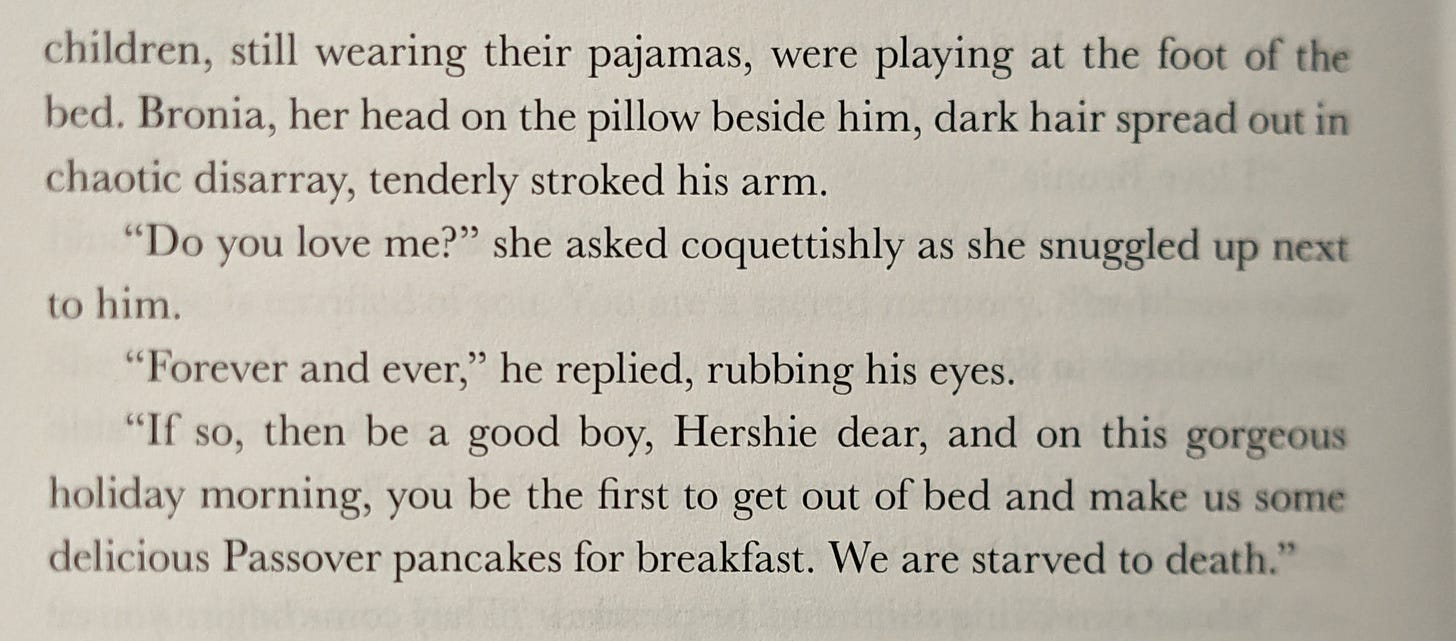
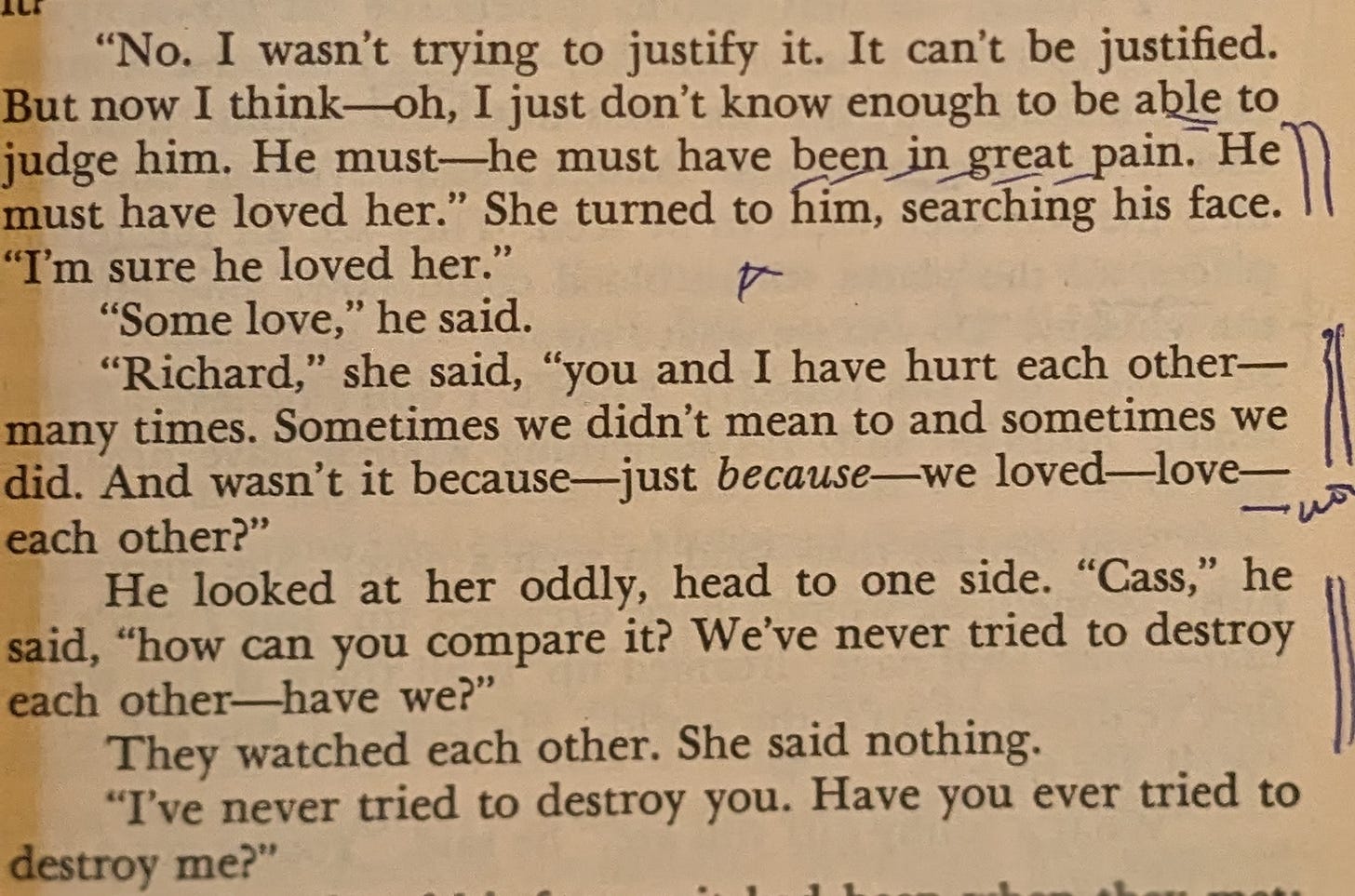
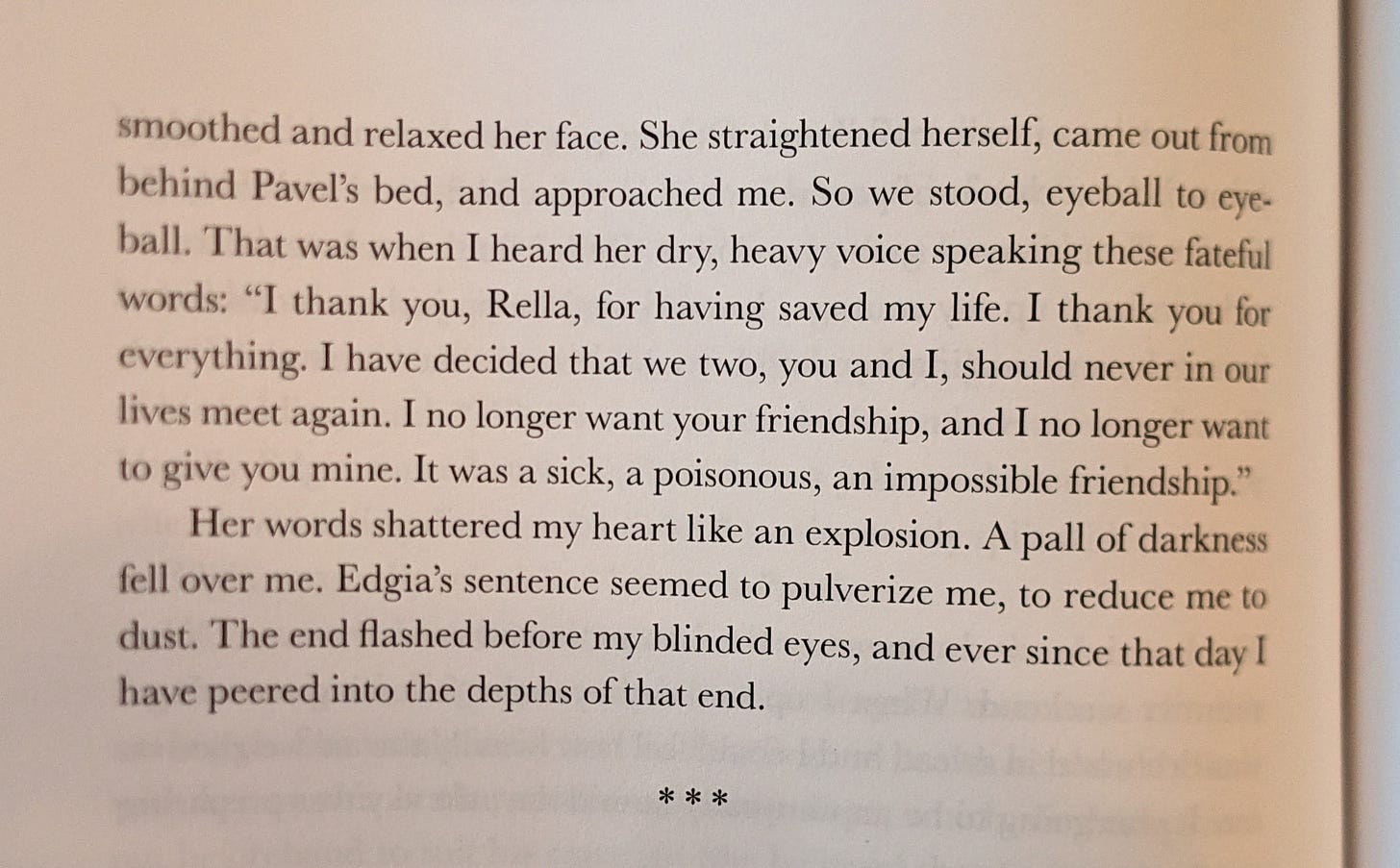
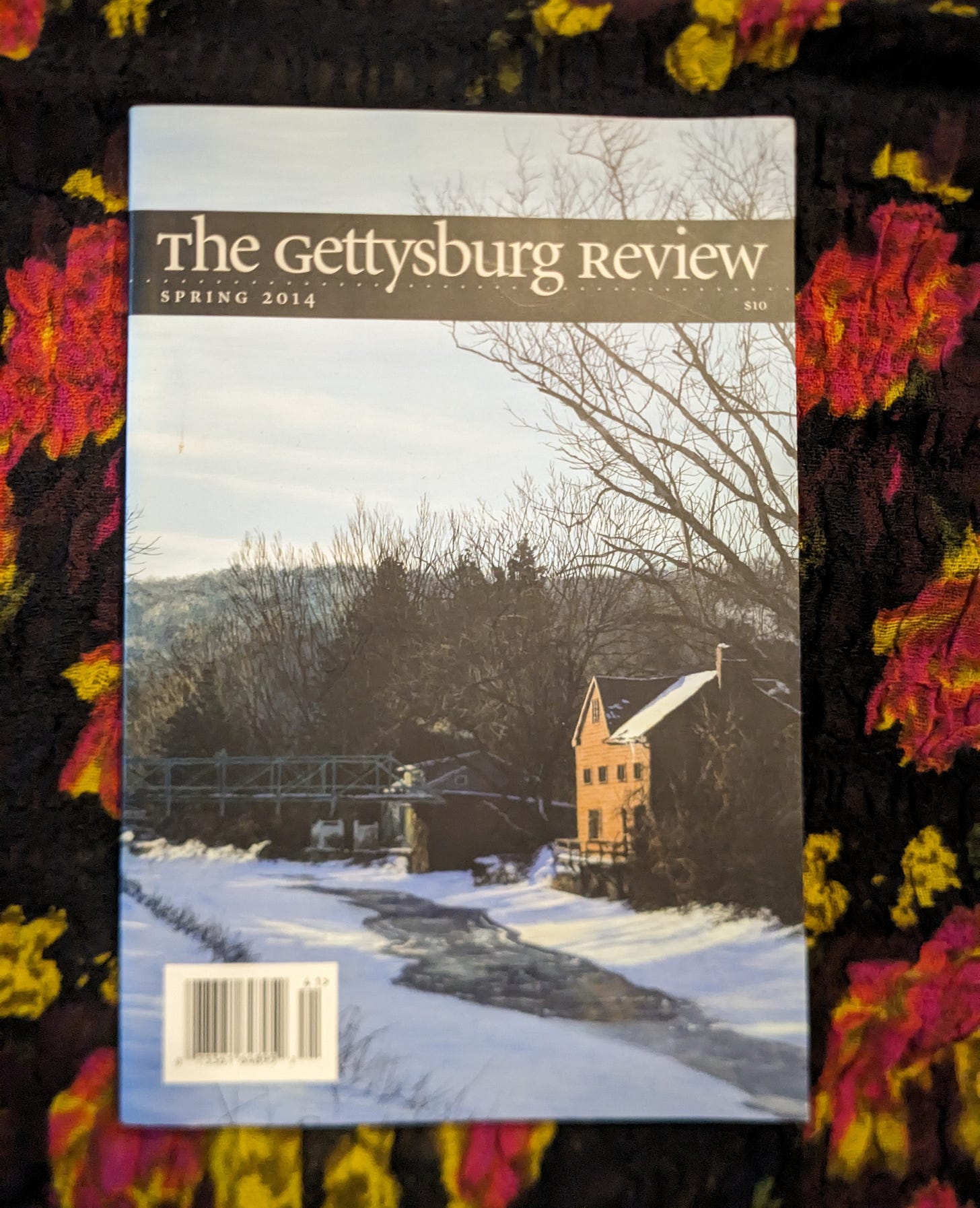
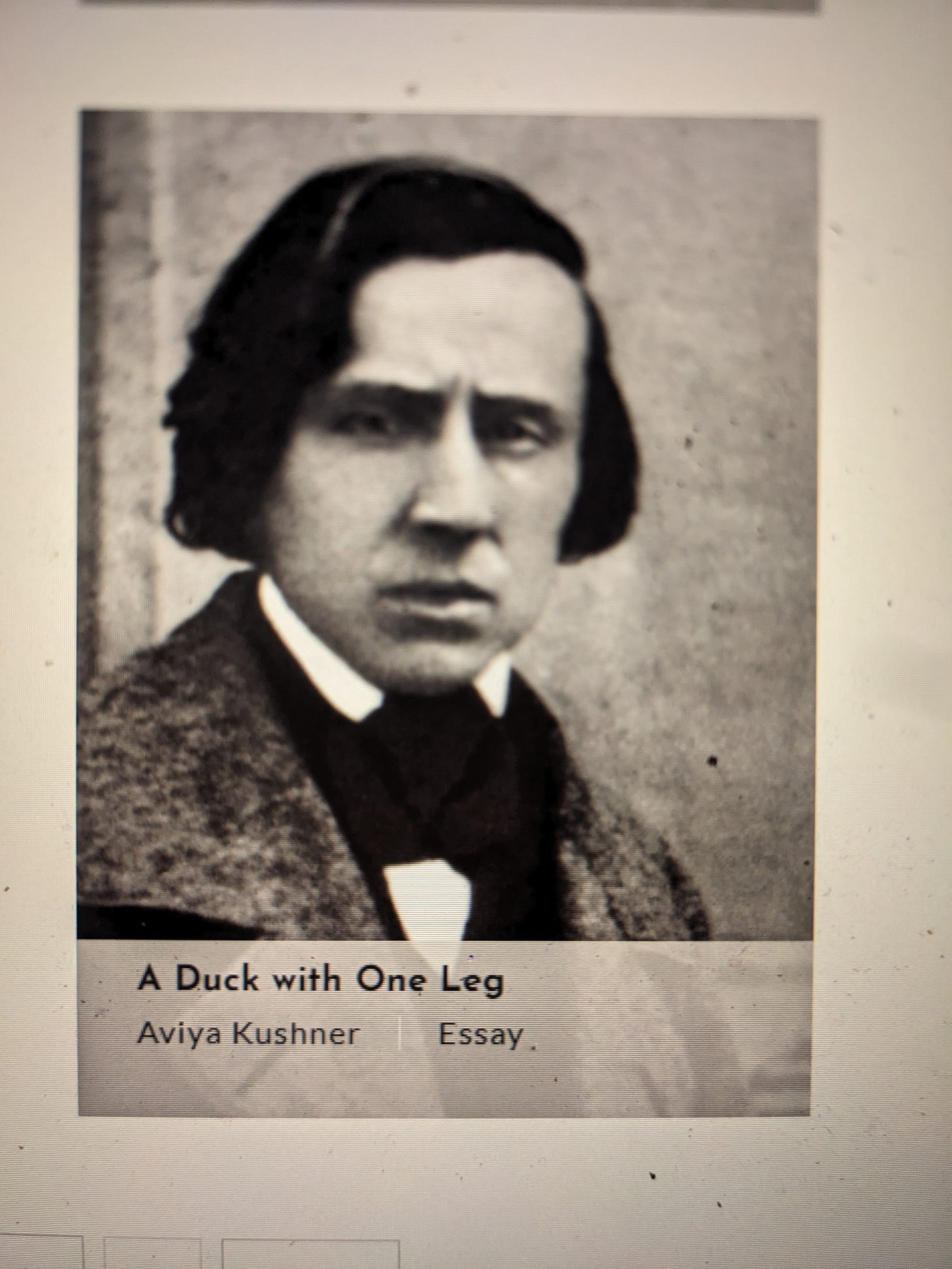
For those who want to read more about the incredible Yiddish writer Chava Rosenfarb, previously featured in my post titled "Love and Destruction: Reading James Baldwin and Chava Rosenfarb," here is my review essay of Rosenfarb's collected short stories for The Forward:
https://forward.com/culture/574507/chava-rosenfarb-centenary-yiddish-writer-lodz-land-of-the-postscript/